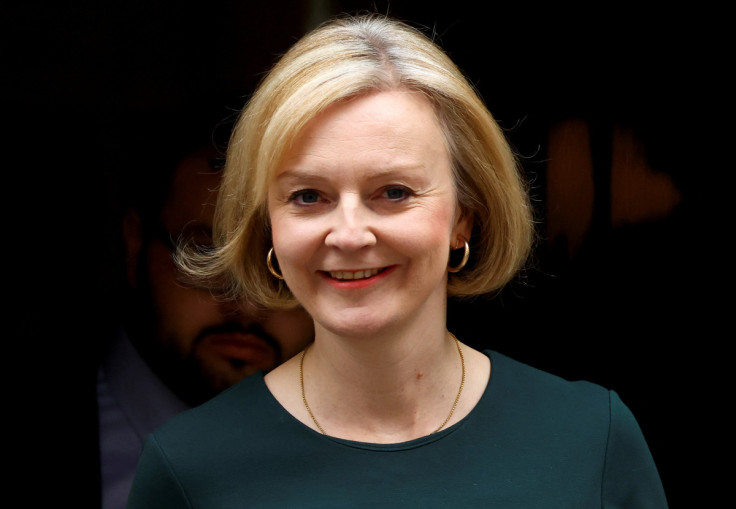UK Government: No Spending Cuts, No Reverse On Tax Cuts

Britain's new government said on Wednesday it would not reverse its vast tax cuts or reduce public spending as it sought to stand firm in the face of yet more turmoil in financial markets and concerns over its change in economic policy.
British financial markets have been under strain since last month when finance minister Kwasi Kwarteng announced 45 billion pounds ($50 billion) of tax cuts and unprecedented support on energy bills without saying how they would be paid for.
The Institute of Fiscal Studies think-tank has said the strategy will require 62 billion pounds of spending cuts or tax increases to stop the public debt growing - a daunting proposition after more than a decade of tight government spending.
"What we will make sure is that over the medium term the debt is falling, but we will do that not by cutting public spending but by making sure we spend public money well," Truss told parliament.
The 47-year-old former foreign secretary was elected last month by members of her party, and not the broader electorate, on a promise to snap the economy out of years of stagnation by cutting taxes and reforming parts of the economy such as planning, migration and childcare.
But markets have taken fright at the tax cuts and the government's earlier criticism of "Treasury orthodoxy," driving up borrowing costs and mortgage rates, and forcing the Bank of England to intervene to buy long-dated government bonds.
Earlier, Truss's business secretary said the government was still committed to economic reforms after the Times reported that it was struggling to agree on new policies.
NO REGRETS
With borrowing costs rising again on Wednesday after Bank of England governor Andrew Bailey said that the market support would end on Friday, Truss was asked if she remained committed to an earlier pledge to maintain spending levels.
"Absolutely, absolutely," she said in parliament. Her junior Treasury minister, Chris Philp, also said the government would not reverse its tax cut plans.
Her spokesman later said that although public spending overall would rise, "there will be deeply difficult decisions to be taken given some of the global challenges we're facing," while government departments have been asked to look for efficiency savings.
Truss and Kwarteng have reversed one of their plans to ditch the top rate of income tax. They have also brought forward the date of a budget with details of fiscal forecasts to Oct. 31.
Mel Stride, the chair of parliament's Treasury Select Committee and a backer of Truss's leadership rival Rishi Sunak, said more policy reversals might be needed to satisfy markets given the commitment to protect public spending.
While their economic approach has alienated some parts of the ruling Conservative Party, many are backing the prime minister, arguing that a recession would kill off any hope they have of winning the next election, expected in 2024.
Iain Duncan Smith, a lawmaker and former leader of the party, told Reuters he did not accept the need to slash spending to such an extent, or the idea that a recession was a price worth paying to drive out inflation.
Asked if the government needed to backtrack, he said: "If it does, we are dead anyway. The truth is they have set out their stall, they just have to make sure it works.
"Any election victory is off the cards once we head into recession. It would be a disaster. So growth is vitally important."
Truss spoke to Conservative Party colleagues in parliament, where lawmakers said she promised to engage more with their concerns ahead of the fiscal statement at the end of the month but did not indicate any concrete shifts in policy.
The mood among lawmakers was "disgruntled but not hostile" with some speaking out to criticise her, according to one lawmaker who declined to be named as the meeting was not public.
"There is the problem that she does not have the full-throated support of the parliamentary party," the lawmaker said.
($1 = 0.9052 pounds)
(Writing by Kate Holton and Alistair Smout; additional reporting by William James and Sachin Ravikumar; Editing by William Schomberg, Louise Heavens and Josie Kao)
© Copyright Thomson Reuters {{Year}}. All rights reserved.





















